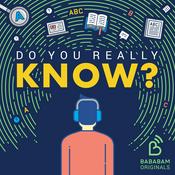Top Class: The OECD Education Policy Podcast | Teachers, PISA, Students

82 episodes

The state of teaching around the world, TALIS results are out
17/10/2025 | 42 mins.
Nine in ten teachers are satisfied with their jobs, yet one in five report a lot of stress. Just two of the findings from the new OECD TALIS report, the largest survey of teachers and school leaders in the world. TALIS captured the perspectives of 280,000 teachers across over 50 education systems. In this episode of Top Class, OECD project manager Ruochen Li, who led the TALIS team, and Antonia Wulff, Director of Research, Policy and Advocacy at Education International, tell the OECD’s Duncan Crawford about the findings.

Why student career preparation is going wrong
24/9/2025 | 34 mins.
A new OECD report reveals that nearly 40% of 15-year-olds are uncertain about their future careers. Alarmingly, only one in three students has attended a job fair or completed an internship, and over 20% hold unrealistic job aspirations. These findings come from The State of Global Teenage Career Preparation, a comprehensive look at how well young people are being equipped for the world of work. In this episode of Top Class, OECD Editor Duncan Crawford speaks with the report’s lead author, Anthony Mann, to unpack the data and explore what needs to change. You can read the full report here: https://www.oecd.org/en/publications/the-state-of-global-teenage-career-preparation_d5f8e3f2-en.html

The state of global education, with OECD’s Andreas Schleicher
10/9/2025 | 25 mins.
More people are getting degrees than ever before, but family background has a big influence on whether people pursue university or another form of tertiary education. That’s one of the key findings of this year’s OECD report Education at a Glance. The report is the authoritative source of information on the state of education worldwide, with data on the structure, financing and performance of education systems across OECD countries and partner economies. In this edition of Top Class, the OECD’s Director for Education and Skills Andreas Schleicher speaks to OECD Editor Duncan Crawford about the main findings.

Reinventing education in Ukraine with former education minister Liliia Hrynevych
21/7/2025 | 23 mins.
Despite Russia’s war of aggression, Ukraine is rewriting the future of its education system. The New Ukrainian School reform programme is a bold initiative to move away from Soviet-era style schooling and to instead embrace a more modern, student-centred approach. It was launched in 2016, two years after Ukraine's pro-Russian president Viktor Yanukovych was ousted after months of mass demonstrations. In this episode of Top Class, former Minister of Education and Science Liliia Hrynevych (2016–2019) joins OECD Editor Duncan Crawford to discuss Ukraine's reform journey. She talks about the country's ambitions, the challenges and why even amidst conflict, Ukraine remains committed to transforming how it teaches the next generation.

The battle for education in Ukraine
07/7/2025 | 16 mins.
How to improve Ukraine’s education system during a time of war was the main topic of discussion at an education festival in the western Ukrainian city of Lviv last month. More than 2,000 Ukrainian teachers gathered for the Teachers of the Future 2025 festival to discuss efforts to reshape schools across the country. Despite Russia’s ongoing war of aggression, Ukrainian policymakers are pushing forward with reforms to tailor learning for all students so they can fulfil their full potential. The New Ukrainian School reforms, launched in 2016, focus on developing key life competencies, empowering teachers and fostering critical thinking and creativity in pupils. In this episode of Top Class, the OECD’s Duncan Crawford spoke to policymakers, teachers and students at the festival about the impact of the reforms.
More Education podcasts
Trending Education podcasts
About Top Class: The OECD Education Policy Podcast | Teachers, PISA, Students
Listen to Top Class: The OECD Education Policy Podcast | Teachers, PISA, Students, Life Kit and many other podcasts from around the world with the radio.net app

Get the free radio.net app
- Stations and podcasts to bookmark
- Stream via Wi-Fi or Bluetooth
- Supports Carplay & Android Auto
- Many other app features
Get the free radio.net app
- Stations and podcasts to bookmark
- Stream via Wi-Fi or Bluetooth
- Supports Carplay & Android Auto
- Many other app features


Top Class: The OECD Education Policy Podcast | Teachers, PISA, Students
download the app,
start listening.

































